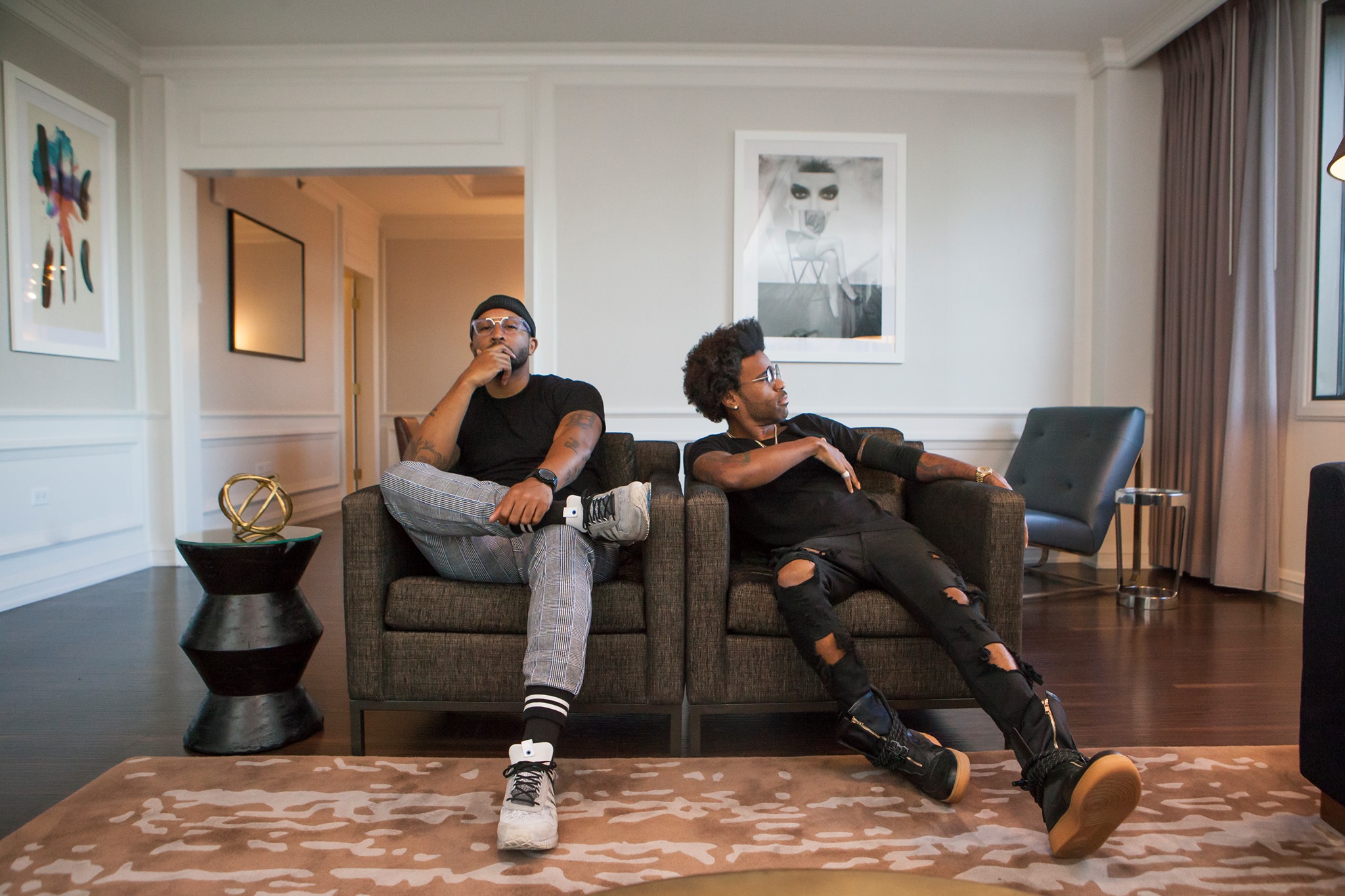In today’s divisive landscape, where discord often drowns out dialogue, Civic Cipher offers a fresh alternative when it comes to amplifying voices, fostering allyship, and nurturing understanding. Hosted by Q Ward and Ramses Ja, this nationally syndicated radio show and podcast was conceived in response to a nation in turmoil.
Ignited by the tragic murders of George Floyd, Breonna Taylor, and Ahmaud Arbery in 2020. This show is not just a platform; it’s a movement, a call to action to confront systemic injustices and pave the way for a more equitable society.
Q Ward and Ramses Ja, both seasoned radio personalities and activists, realized the power of their platform and sought to utilize it for greater impact. As Ramses Ja recounts, “We kind of felt like, maybe there’s a little bit more that we can offer at this moment than making a sign and walking or putting a black square on Instagram.”
Their journey began with a simple idea: to carve out 30 minutes a week to interview activists and amplify their voices. Little did they know that this idea would evolve into a nationwide movement.
However, their journey wasn’t without challenges. When faced with resistance from their employers, who dismissed their proposal with a racially insensitive remark, Ramses Ja made the bold decision to resign. But he didn’t just resign for himself, he resigned for Q Ward as well. “I addressed my resignation letter to the city of Phoenix and thanked everyone for the ratings. And I told them why I was resigning.” This courageous act marked the beginning of a new chapter for the dynamic duo, one where they would take control of their narrative and create a space where marginalized voices could be heard. But this new direction didn’t come without fear and uncertainty.
“Our careers in radio were over as far as we knew,” Q Ward said. ‘It worked out now but people don’t realize that there was no next step. There was no plan B, there was no alternative. We had to figure out what we’re going to do now.”
The origin of Civic Cipher wasn’t just about amplifying black voices; it was about fostering allyship and understanding.
“We felt like rather than leave people subjected to disinformation from other media outlets and news outlets that were stoking fear, we can just create a program that says what’s really happening and explain these really novel and jarring sounding concepts like defund the police,” Ramses Ja said.
Their goal was clear: to bridge the gap between communities and dismantle the narratives that perpetuate division.
But how does Civic Cipher accomplish this monumental task? Through long-form, data-driven conversations that delve into the heart of social justice issues. Civic Cipher excellently packages and delivers purposeful, educational, and relevant material and warmly welcomes audiences across all demographics.”
In fact, one of the defining features of Civic Cipher is its inclusivity. While the show is rooted in the Black experience, it extends its reach to embrace all marginalized communities.
“We find those things that unite us. Starting the conversations with love and redemption, and figuring out a way forward that’s beneficial to everyone—not just us, is how those allies are built,” Q Ward said. “When you show up for people when they don’t expect you to show up, you kind of fortify the relationships that you’re trying to build.”
Ramses Ja emphasizes the analytical nature of the show. “We were going to be critical of policing as it’s done in this country… We were going to be critical of far-right conservatives and the MAGA movement… And again, this is going to be a space that is decidedly Pro-black and pro-ally.” By embracing intersectionality, Civic Cipher creates a space where diverse voices can converge and find common ground.
In the quest for social justice, Civic Cipher confronts uncomfortable truths and challenges prevailing narratives. A poignant example of this was their interview with political correspondent Ami Horowitz, whose views diverged from their own. Ramses Ja said, “We were able to have a conversation that I thought was very important for our listeners to witness.”
It’s evident that Civic Cipher is more than just a radio show or a podcast; it’s a movement for change. With each episode, Q Ward and Ramses Ja are rewriting the narrative, challenging perceptions, and building bridges.

